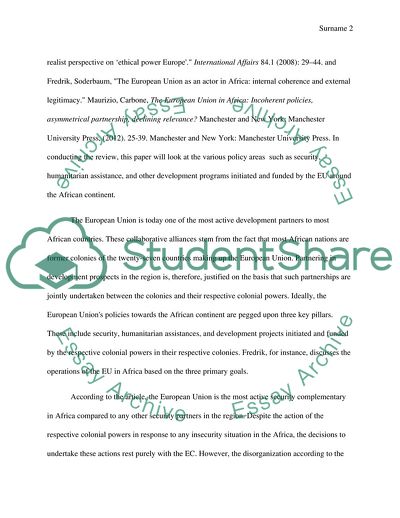Cite this document
(Presence of the European Union in Africa Essay Example | Topics and Well Written Essays - 1250 words, n.d.)
Presence of the European Union in Africa Essay Example | Topics and Well Written Essays - 1250 words. https://studentshare.org/social-science/1875506-a-5-page-critical-review-of-2-journal-articles
Presence of the European Union in Africa Essay Example | Topics and Well Written Essays - 1250 words. https://studentshare.org/social-science/1875506-a-5-page-critical-review-of-2-journal-articles
(Presence of the European Union in Africa Essay Example | Topics and Well Written Essays - 1250 Words)
Presence of the European Union in Africa Essay Example | Topics and Well Written Essays - 1250 Words. https://studentshare.org/social-science/1875506-a-5-page-critical-review-of-2-journal-articles.
Presence of the European Union in Africa Essay Example | Topics and Well Written Essays - 1250 Words. https://studentshare.org/social-science/1875506-a-5-page-critical-review-of-2-journal-articles.
“Presence of the European Union in Africa Essay Example | Topics and Well Written Essays - 1250 Words”. https://studentshare.org/social-science/1875506-a-5-page-critical-review-of-2-journal-articles.


